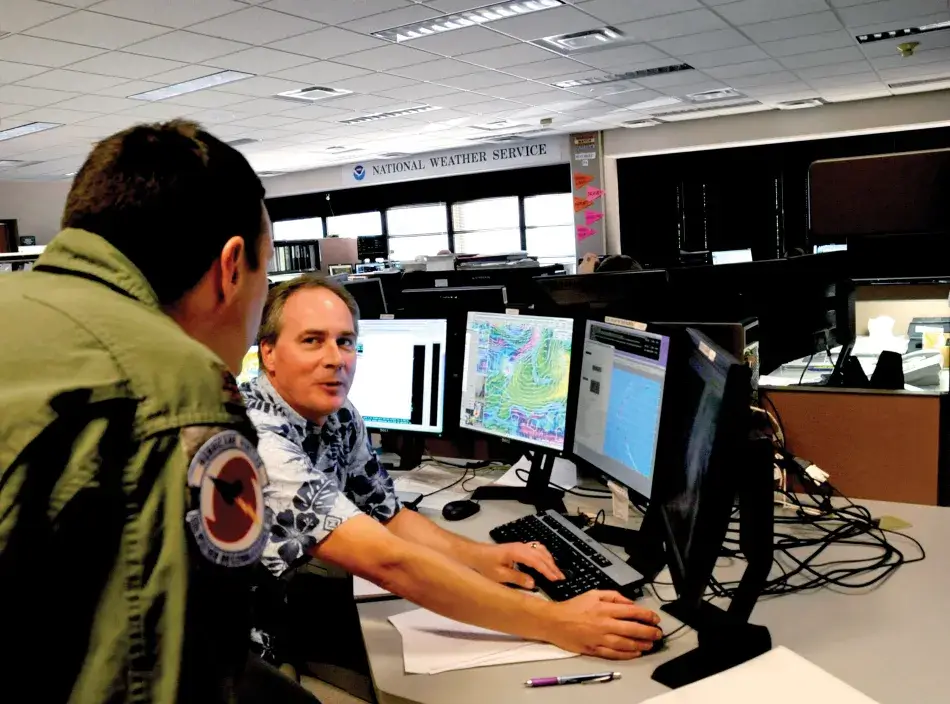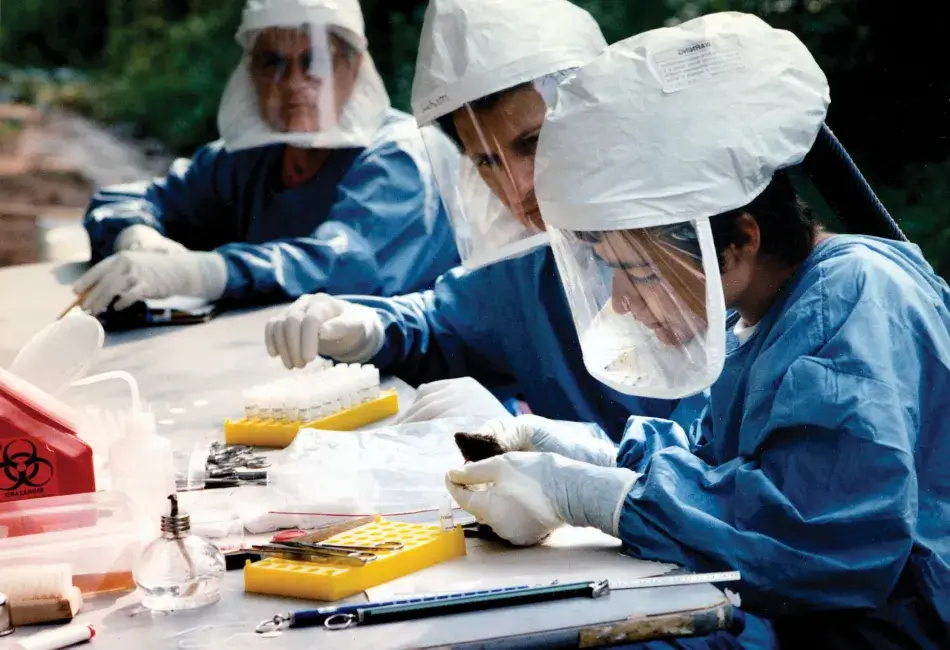Policy Recommendations to Improve Science During Crisis
Changes in current federal, state, and local policies are needed to improve science during crisis. These changes will advance the conduct of science, access to and use of scientific data, and the role of science in decision-making, as well as improve crisis response and recovery. In addition to federal, state, and local government policies, improvements are needed in policies governing academic institutions, communities of practice, nongovernmental organizations, and private industry.
State governments should create a Chief Science Officer position to facilitate science during crisis. Gaps or lack of understanding between different professional cultures can lead to a mismatch between scientific activity, emergency response, and on-the-ground needs. It can also lead to a lack of institutional support for science during crisis at a state, regional, and local level. Creating a Chief Science Officer position within state government would reduce confusion and facilitate effective conduct and application of science during crisis. The Chief Science Officer would serve as a critical liaison between state and local government offices, emergency responders, and the scientific community.

FEMA should refine language referencing the Science and Technology Advisor position outlined in the 2017 National Incident Management System (NIMS) revision, as well as associated supplemental guidance and tools. Given that NIMS defines standard command and management structures for use nationwide by the entire FEMA and disaster-response community, the integration of science into this national doctrine is essential. The inclusion of the Science and Technology Advisor role supports effective delivery and application of science during crisis response operations: to inform decision-making, enhance safety, integrate wider scientific community input, and improve the collection and application of scientific data. The responsibilities of the Science and Technology Advisor should include facilitating site access for properly equipped and trained scientists, setting standards for data collection, and acting as a liaison between the scientific community and incident command.
Publishers of scientific journals and books should develop and implement policies that improve accessibility of scientific information during a crisis. During a crisis, access to up-to-date research is critical for the scientific community to identify gaps that need immediate attention and to find scientific solutions to pressing problems. Further, the rapid dissemination of data collected during a crisis but prior to publication is often critical for decision-making and to avoid unnecessary duplication of effort. Publishers should adopt a policy of providing free, publicly available, full-text access to journals, e-books, and databases with relevant information during and immediately following major crises. Recent advances within the biomedical community provide a potential model.
The scientific community should develop a code of conduct that addresses ethical and professional practices to which scientists engaged in science during crisis would adhere. A science during crisis code of conduct would describe scientists’ distinct ethical responsibilities during a major crisis. The code of conduct should favor altruism over competition in scientific research and should recognize the primacy and rights of the communities and sovereign tribes immediately affected by the crisis. The code of conduct would recognize that science during crisis operates differently than science during noncrisis times, and should be developed and agreed upon by the burgeoning science during crisis community of practice.

Federal agencies and academic institutions should ease and/or expedite administrative restrictions on collaboration, information sharing, and data collection to enable more effective science during crisis. Administrative restrictions such as the Federal Advisory Committee Act (FACA) and Paperwork Reduction Act (PRA) can serve as barriers to efficient conduct of science during crisis at a federal level: the FACA can prevent rapid access to needed expertise and advice, and the PRA can slow the rapid collection of critical human subject data. In addition, the sometimes lengthy (weeks- or months-long) process of Institution Review Board (IRB) approval does not always align with the compressed timelines typical of rapidly unfolding crises.16 Reform of these policies that provide limited exemptions for science during crisis, while protecting the public’s “right to know” and preventing unnecessary intrusions of privacy, can improve the conduct of science during crisis. Because federal agencies have varying FACA guidelines and policies, pilot reforms in selected and critically important agencies (such as FEMA, NOAA, and others) can create realistic opportunities for progress.